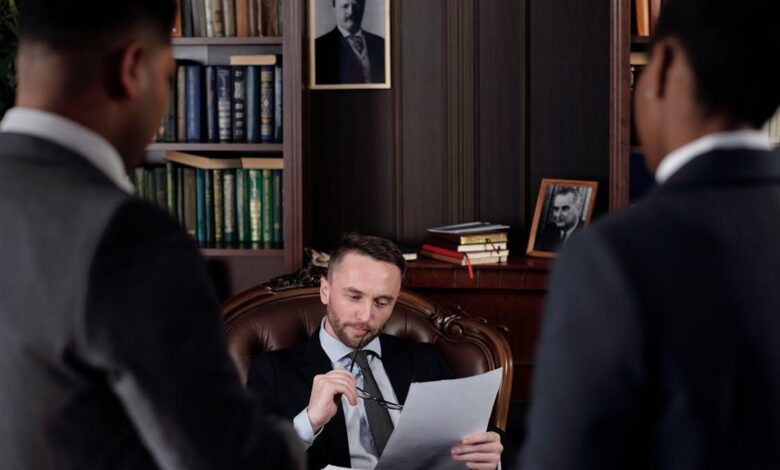Personal Injury Lawsuit – How to Strengthen Your Case and What to Avoid

Personal injury lawsuits play a critical role in providing victims with the opportunity to seek compensation for injuries caused by accidents or negligence. These cases cover a wide range of incidents, including car accidents, medical malpractice, slip and fall cases, workplace injuries, and product liability. Each type of personal injury case differs and requires careful preparation to ensure a successful outcome.
In Baltimore, the prevalence of car accidents highlights the importance of understanding personal injury laws. Of the 16,165 car crashes reported in 2022, at least 5,054 resulted in one injury. These statistics underscore the frequency of personal injury cases and the need for victims to be well-informed about their legal rights and options. Proper preparation and awareness can significantly impact the outcome of a personal injury lawsuit, making it essential to avoid common mistakes and take proactive steps to strengthen the case.
How to Strengthen Your Personal Injury Case
- Hiring Lawyers
Securing skilled legal representation is one of the most critical steps in strengthening a personal injury case. The complexities of personal injury law in Baltimore and the tactics used by insurance companies necessitate the expertise of a seasoned lawyer. Hence, to overcome these challenges effectively, it is crucial to hire the best personal injury lawyers in Baltimore who have a proven track record in handling similar cases. Experienced lawyers bring valuable insights and strategies that can significantly improve the chances of a successful outcome.
A top personal injury lawyer will meticulously analyze the details of the case, identify key pieces of evidence, and develop a robust legal strategy. They can negotiate with insurance companies to ensure fair compensation and, if necessary, represent the victim in court. Their knowledge of local laws and procedures can prevent costly mistakes and ensure that the case progresses smoothly.
- Gathering Comprehensive Evidence
Detailed evidence helps establish the facts of the case, demonstrate liability, and quantify the damages suffered. Without thorough evidence, it becomes challenging to prove the extent of injuries and the impact on the victim’s life.
Accident reports provide an official account of the incident, often including the police officer’s observations and any citations issued. Medical records document the injuries sustained, the treatment required, and the prognosis for recovery. Witness statements offer additional perspectives on the incident, which can corroborate the victim’s account.
- Maintaining Consistent Medical Treatment
Regular visits to healthcare providers and adherence to their recommendations demonstrate the ongoing impact of the injury, which is important for substantiating claims for compensation.
Documenting all medical treatments, including doctor visits, physical therapy sessions, and medications, provides a clear record of the recovery process. Any gaps in treatment can be used by insurance companies to argue that the injuries are not as severe as claimed.
- Keeping Detailed Records of Expenses and Losses
Keeping detailed records of all expenses and losses related to the injury is vital for calculating fair compensation. This includes medical bills, receipts for medications, records of lost wages, and any other financial impacts resulting from the injury. Thorough documentation helps ensure that all costs are accounted for in the compensation claim.
Tracking expenses also helps demonstrate the financial burden caused by the injury. It includes not only direct costs like medical bills but also indirect costs such as transportation to medical appointments and home modifications needed due to the injury.
- Being Cautious with Social Media
Social media activity can have a significant impact on a personal injury case. For example, a seemingly innocent photo of the victim engaging in physical activity could be used to argue that the injuries are not as severe as claimed. Being cautious with social media usage is essential to avoid inadvertently harming the case.
Setting strict privacy settings and avoiding posts about accidents, injuries, or legal proceedings can help protect the case. It is also wise to avoid sharing any activities that insurance companies or opposing counsel could misinterpret.
Common Mistakes to Avoid in a Personal Injury Lawsuit
- Delaying Medical Treatment
Seeking immediate medical attention after an accident is crucial for both health and legal reasons. Delaying treatment can worsen injuries and create complications that could have been avoided with prompt care. Medical records are vital evidence for your case, showing the severity of injuries alongside necessary treatment. Insurance companies and courts often view delayed medical treatment with suspicion, potentially weakening the credibility of the injury claim.
Ignoring early medical intervention can also lead to an incomplete understanding of the injury’s impact. Without timely medical evaluations, it becomes challenging to establish a direct link between the accident and the injuries sustained.
- Not Documenting Evidence
Comprehensive documentation is essential to building a strong personal injury case. This includes gathering evidence such as police reports, photographs of the accident scene, medical records, and witness statements. These documents provide a clear and detailed account of the incident, helping to establish liability and the extent of damages. Failing to collect sufficient evidence can result in a weaker case, making it difficult to prove negligence or the severity of injuries.
- Talking to Insurance Adjusters Without Legal Advice
Insurance adjusters often approach accident victims soon after the incident, seeking statements and information about the case. Speaking to them without legal counsel can be risky. Adjusters may use tactics to elicit statements that could undermine the claim, such as downplaying the severity of injuries or suggesting that the victim was at fault. Providing information without proper legal guidance can lead to misinterpretations that weaken the case.
Consulting with a lawyer before speaking to insurance adjusters ensures that the victim’s rights are protected.
- Ignoring Legal Deadlines
In Maryland, the statute of limitations for personal injury claims is generally three years from the date of the accident. Missing this deadline can result in the case being dismissed, regardless of its merits, leaving the victim without recourse for compensation.
Timely action is also essential for preserving evidence and witness availability. As time passes, memories fade, and evidence can be lost or become less reliable. Promptly initiating the legal process helps ensure that all necessary documentation and testimony are available to support the case. Consulting with a lawyer early on can help victims stay on track with deadlines and avoid any procedural pitfalls that could jeopardize their claims.
Conclusion
Hiring a personal injury lawyer, gathering comprehensive evidence, keeping detailed records of expenses, and being cautious with social media can significantly strengthen the case. Additionally, avoiding common mistakes and taking proactive steps are crucial in personal injury lawsuits. Seeking immediate medical treatment, documenting evidence, consulting with a lawyer before speaking to insurance adjusters, adhering to legal deadlines, and maintaining consistent medical care are all essential actions.



